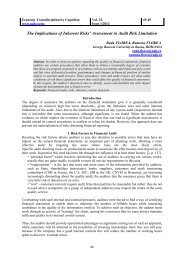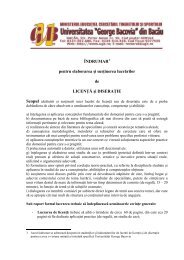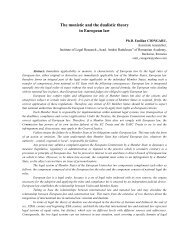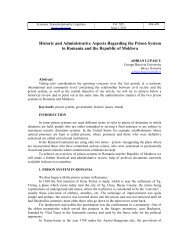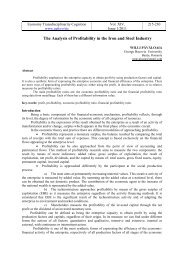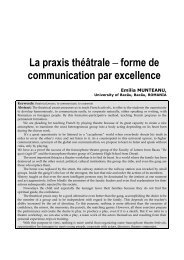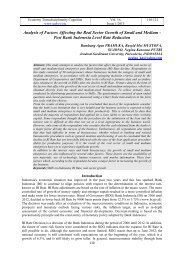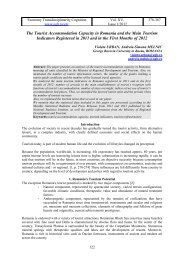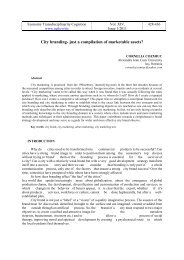BULETIN ÄTIIN IFIC - Universitatea George Bacovia
BULETIN ÄTIIN IFIC - Universitatea George Bacovia
BULETIN ÄTIIN IFIC - Universitatea George Bacovia
Create successful ePaper yourself
Turn your PDF publications into a flip-book with our unique Google optimized e-Paper software.
In most organizations today, managers spend a great deal of time and energy<br />
communicating face to face with employees. A number of situations necessitate the use of oneon-one<br />
interpersonal communication skills. They include performance appraisals, selection and<br />
recruitment, reprimand and correction, counseling and coaching, goal setting, orientation,<br />
negotiation, and exit interviews.<br />
<br />
<br />
a) It promotes understanding of hidden meanings<br />
It is often difficult to communicate feelings and values through written communication.<br />
Reading between the lines is often uncertain. Face-to-face communication allows the<br />
opportunity to read non-verbal cues facial expressions, gestures, tone of voice, etc. These cues<br />
are valuable in helping understand the intensity and importance of employee needs, motivations<br />
and values.<br />
b) It makes employees feel important



